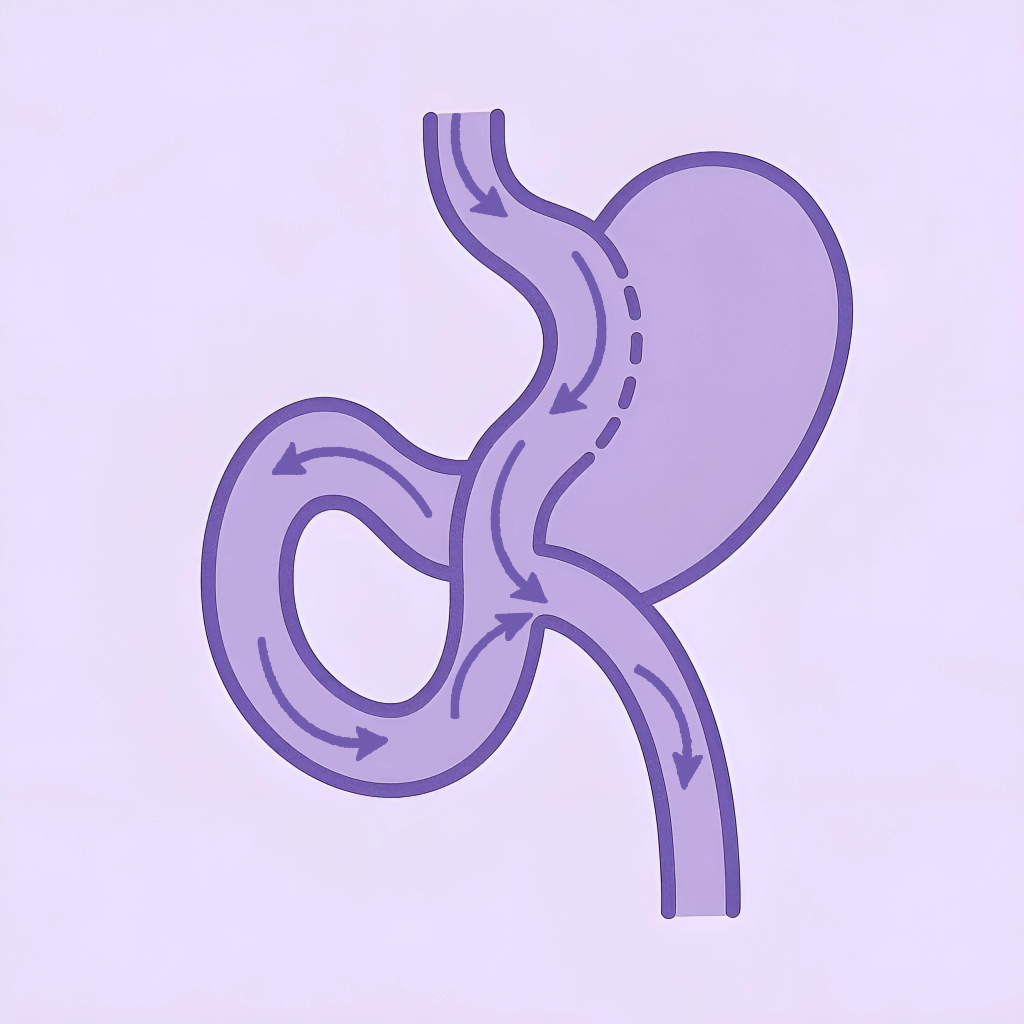Rectum
%201.svg)






Rectal cancer is a type of cancer that starts in the rectum, often developing from polyps.
Overview
Rectal cancer is a type of cancer that begins in the rectum, the last few inches of the large intestine. It starts at the end of the colon and extends to the narrow passage leading to the anus. Although rectal and colon cancers are often grouped together as colorectal cancer, they require different treatment approaches due to the rectum’s location in a confined space near other organs.
Several factors increase the risk of rectal cancer. Age is a primary factor, as most cases occur in people over 50. Family history of colorectal cancer or inherited conditions like Lynch syndrome and familial adenomatous polyposis (FAP) raise the risk. Lifestyle factors such as a low-fiber, high-fat diet, smoking, excessive alcohol use, obesity, and physical inactivity also contribute. Medical conditions like inflammatory bowel diseases (Crohn’s disease or ulcerative colitis), diabetes, and previous radiation therapy to the abdomen further increase the likelihood of developing rectal cancer.
Symptoms & Diagnosis
Signs of rectal cancer often appear as the disease progresses. Common symptoms include changes in bowel habits, rectal bleeding, dark maroon or bright red blood in the stool, unexplained weight loss, abdominal pain, weakness, and fatigue. Some individuals may experience narrow stools or a persistent feeling that their bowels are not completely emptied.
Rectal cancer is diagnosed through colonoscopy, where a flexible tube with a camera is used to examine the colon and rectum. If cancer is found, doctors may perform a biopsy, removing tissue samples for laboratory analysis. Additional tests, such as MRI, CT scans, and PET scans, help determine the cancer stage and spread. Blood tests, including CEA (carcinoembryonic antigen) levels, may be used to monitor cancer progression and treatment response.
Treatment
Rectal cancer treatment often involves a combination of surgery, chemotherapy, and radiation therapy. Surgery is the primary treatment, aiming to remove the tumor while preserving bowel function. Chemotherapy may be recommended before or after surgery to shrink tumors or destroy remaining cancer cells. Radiation therapy is used to target and kill cancer cells, particularly in cases where the tumor is large or difficult to remove.
For advanced cases, targeted therapy and immunotherapy may be used to block cancer cell growth or boost the immune system’s ability to fight cancer. Palliative care may also be offered to improve quality of life and manage symptoms for those with advanced disease.
Procedure Details
Rectal cancer surgery involves removing the tumor, affected sections of the rectum, and nearby lymph nodes to prevent cancer spread.
Anesthesia is administered for patient comfort.
An incision is made in the abdomen, or laparoscopic access is established.
The affected portion of the rectum is removed (low anterior resection or abdominoperineal resection, depending on the tumor’s location).
Nearby lymph nodes are removed to prevent cancer spread.
The digestive tract is reconstructed, or a colostomy is created if necessary.
Recovery
Recovery depends on the extent of surgery. Most patients stay in the hospital for several days and gradually transition from a liquid diet to solid foods. Temporary bowel changes, pain, and fatigue are common but manageable with medical guidance.
Post-surgery care includes pain management, dietary recommendations, and follow-up visits to monitor healing. Patients who require a colostomy receive specialized care instructions, while those adjusting to bowel function changes are provided with long-term support to improve quality of life.
Have questions about your treatment?
Our team is available 24/7 with multilingual support.

Frequently Asked Questions
Find answers to common inquiries.
Need personalized support?
WhatsApp us for a quick response—we reply within minutes.
What types of surgeries does Dr. Gül specialize in?
Why choose Türkiye for surgical procedures?
What is the recovery time for most surgeries?
What bariatric procedures are offered at the clinic?
How much weight can I expect to lose after bariatric surgery?
What languages does Dr. Gül and his team speak?
Will I need to take supplements after bariatric surgery?
Does insurance cover these procedures?
Can I combine treatment with travel in Turkey?
What support is available after surgery?
Our Expertise

Sleeve Gastrectomy
Minimally invasive surgery for long-term weight loss with a simple procedure and no rerouting.

Mini Gastric Bypass
Simpler, less invasive gastric bypass for significant weight loss and diabetes control.

Gastric Balloon
A non-surgical, temporary option for moderate weight loss without permanent stomach changes.
Follow Dr. Gül on Instagram





